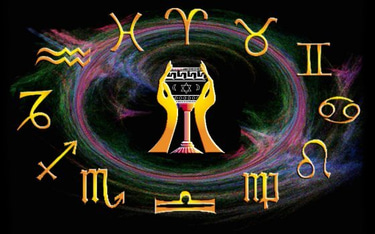Pisces Myths
Pisces is the last of the zodiacal signs, and also provides the backbone for Aries which then springs into action.
There are many Piscean myths that have a connection with pagan Egyptian, Babylonian times, and also to the Christian era. This ties in with the Piscean age, of 2000 years ago, of Christ the great redeemer and saviour, and also represents religious rituals, which still goes on to to-day in communion, with the eating of bread and wine which represents the blood and body of Christ.
The earliest Egyptian and Babylonian stories about the heavenly fishes are associated with the Syro-Phonenician fish cult of the great goddess Atargatis, her temples, had pools of fish. These fish were sacred, and no one was allowed to touch them, although the fish were ritually eaten.
According to the Babylonians story two fishes find an egg. A dove comes and settles on the egg, until it hatches. The Goddess Atargatis emerges from the egg. At her request the Goddess provide a place in the heavens, so that they will be honored.
The dove represents sprit and peace also Aphrodite the Goddess of love. The fish represents the mother and son in the eternal struggle with one another, the son being part of and immersed in mother's water, and her creative yet primal energies.
One of the fishes represents great fertile mother and the other is the son. She has the more distasteful qualities of the sign and the son the healing qualities of Christ. Both characters in actual fact are part of one another. The mother is the power and the son the victim, or redeemer.
Pisces are born either a victim who can overcome their pain with compassion, and so therefore becomes the saviour the healer, and all the excellent attributes that they posses. But this does tend to be a struggle, which needs to be overcome. Pisces are sometimes referred too as twice born. Because they have this ability to break through, their own suffering, and then to become someone else's saviour.
All material in this site is © Valerie Georgiou 1999.
